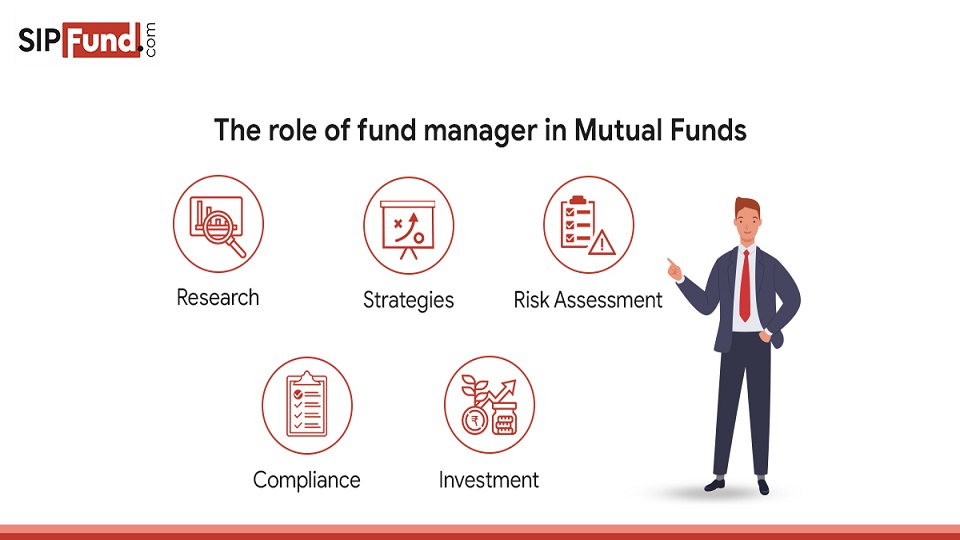What is a fund Manager?
A fund manager is often made of words i.e. “Fund” and “Manager” which stands for a person who manages a fund. A fund manager is responsible for strategizing investments and managing a portfolio. A fund manager can be anyone, either one person or a team.
They are responsible for selecting and managing the assets within the fund, with the goal of generating returns for investors. Fund managers analyze market trends, research individual securities, and make strategic investment decisions based on their expertise and experience.
Understanding Fund Managers:
The market works on a volatile nature. The uncertainty of the market created a space or need for fund managers. A manager goes through the depth of the market to produce a profitable return for its customers. A fund manager brings peace to the customers and assures them that their money is in safe hands.
While fund managers charge fees, these costs can be offset by the returns generated through their professional management. Also, fund managers often have access to investments that may not be available to individual investors, such as hedge funds or private equity funds.
Roles and Responsibilities:
Roles being critical, fund managers play a very important role in the investment business. From safeguarding investor money and interest to digging up to find the best investment option, a fund manager has very extensive roles to play:
Researching investment opportunities: Fund managers conduct extensive research to identify potential investment opportunities. They analyze companies, industries, and economic trends to make informed decisions about where to allocate the fund’s assets.
Portfolio construction: Fund managers build and manage investment portfolios that align with the fund’s investment objectives and risk tolerance. They carefully select securities and allocate assets to achieve the desired level of diversification and return.
Risk management: Fund managers are responsible for managing risk within the portfolio. They monitor market conditions, assess the risk associated with different investments, and implement strategies to protect the fund’s assets from losses.
Performance analysis: Fund managers track the performance of the fund’s investments and evaluate the effectiveness of their investment strategies. They use performance metrics to assess the fund’s success and identify areas for improvement.
Protect Investor Interest: Providing customers the relief that their money is in the right hands takes a lot of effort. Fund manager ensures that their interest are safe and their money is being invested into a safe investment option.
Path to a Fund Manager:
A fund manager job seems interesting, right? You get all day to play with money make some good decisions and earn a hefty amount as a commission. So, the question arises how to become a fund manager:
Obtain a bachelor’s degree: A bachelor’s degree in finance, economics, accounting, or a related field is a common starting point for aspiring fund managers. No matter which college you are graduating from, get a bachelor’s degree. This is the minimum criteria for becoming a fund manager.
Earn a master’s degree (optional): While not always required, a master’s degree in business administration (MBA) with a concentration in finance can provide a competitive edge. It can help you in getting exposure and extra skills to become a fund manager.
Gain work experience: Many fund managers start their careers in entry-level roles within the investment industry, such as research analysts or portfolio assistants. This experience helps them develop the necessary skills and knowledge to advance to fund manager positions. Even a master’s degree can help you to earn a good work experience.
Obtain industry certifications: Certifications like the Chartered Financial Analyst (CFA) designation can demonstrate expertise and credibility in the field of finance. It will help you to prove your credibility as a fund manager. It also helps you to gain the trust of the investor.
Network and build relationships: Building strong relationships within the investment industry can help secure fund manager positions. Attending industry conferences, networking events, and participating in professional organizations can be beneficial.
Start small: Beginning as a fund manager for a smaller firm or a specialized fund can provide valuable experience and growth opportunities.
Conclusion:
So, choosing a fund manager as a career can be astonishing, a fund manager carries the responsibility of return on investment. They play a vital role in the investment world by offering investors a range of benefits.
Their expertise, diversification capabilities, time efficiency, and risk management skills make them valuable partners in achieving investment goals. While there are costs associated with their services, the returns generated through their professional management can often outweigh these expenses.
For individuals seeking to benefit from the expertise of financial professionals and achieve their investment objectives, considering a fund manager is a worthwhile option.


